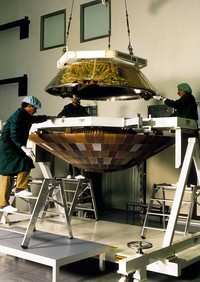Wed, Jan 03, 2007
Advertisement
More News
 Classic Aero-TV: VerdeGo Debuts VH-3 Hybrid-Electric Powerplant
Classic Aero-TV: VerdeGo Debuts VH-3 Hybrid-Electric Powerplant
From 2023 (YouTube Edition): New Propulsion Scheme Optimized for AAM Applications Founded in 2017 by Eric Bartsch, Pat Anderson, and Erik Lindbergh (grandson of famed aviation pion>[...]
 NTSB Prelim: Grumman American Avn. Corp. AA-5B
NTSB Prelim: Grumman American Avn. Corp. AA-5B
During The Initial Climb, The Engine Began To Operate Abnormally And, After About Three Seconds, Experienced A Total Loss Of Power On October 29, 2025, about 1820 Pacific daylight >[...]
 ANN's Daily Aero-Linx (12.02.25)
ANN's Daily Aero-Linx (12.02.25)
Aero Linx: Women in Aviation International Women in Aviation International is the largest nonprofit organization that envisions a world where the sky is open to all, and where avia>[...]
 Aero-News: Quote of the Day (12.02.25)
Aero-News: Quote of the Day (12.02.25)
“We’ve paid for the cable line’s repair for the customer and have apologized for the inconvenience this caused them...” Source: Some followup info from an A>[...]
 Aero-News: Quote of the Day (12.03.25)
Aero-News: Quote of the Day (12.03.25)
“We have long warned about the devastating effects of pairing optimization. Multiple times over many months, we highlighted how schedule manipulation, unbalanced schedules, a>[...]
blog comments powered by Disqus





